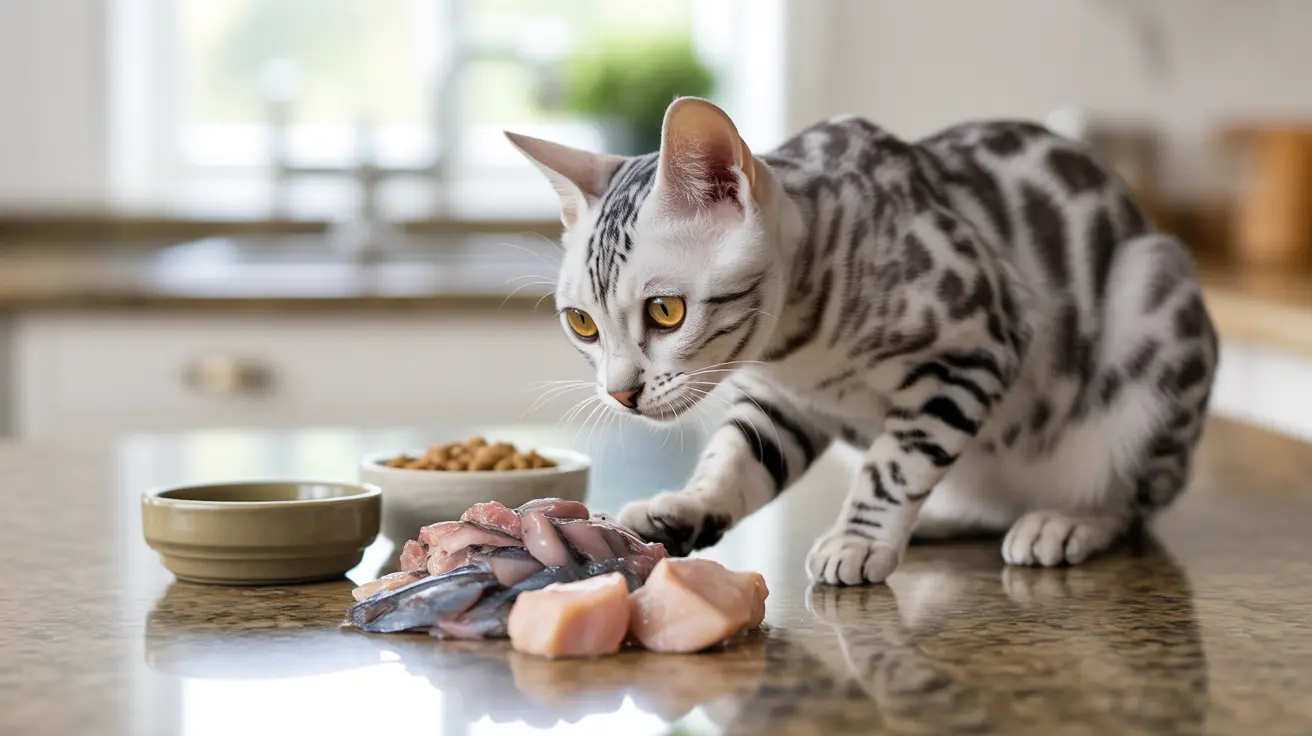Understanding Magnesium's Role in Feline Health
Magnesium is a crucial mineral that supports hundreds of enzymatic reactions in your cat's body. It's essential for proper muscle function, nerve transmission, and bone development. This mineral also helps maintain healthy heart rhythm and supports your cat's immune system.
Your cat's body relies on magnesium to:
- Regulate muscle contractions
- Support nerve function
- Maintain bone strength
- Aid in energy production
- Support cardiovascular health
Natural Food Sources of Magnesium for Cats
Many common foods contain healthy levels of magnesium that are safe for cats. The best sources include:
Fish-Based Sources
- Salmon
- Mackerel
- Halibut
- Pollock
Meat Sources
- Chicken breast
- Lean beef
- Organ meats
These protein-rich options not only provide magnesium but also offer other essential nutrients your cat needs.
Signs of Magnesium Deficiency
While rare in cats eating commercial cat food, magnesium deficiency can occur. Watch for these symptoms:
- Muscle weakness or tremors
- Lethargy
- Irregular heart rhythm
- Behavioral changes
- Poor appetite
When Supplementation May Be Necessary
Most cats don't need magnesium supplements, but certain conditions might require additional intake:
- Chronic kidney disease
- Certain heart conditions
- Diabetes
- Recovery from illness
Always consult your veterinarian before starting any supplementation regimen, as excess magnesium can be harmful.
Risks of Excessive Magnesium
Too much magnesium can lead to serious health issues in cats, including:
- Urinary tract problems
- Crystal formation in the bladder
- Kidney stress
- Digestive upset
This is why it's crucial to maintain proper balance and only supplement under veterinary guidance.
Frequently Asked Questions
Can cats safely have magnesium supplements, and when are they necessary?
Cats can safely have magnesium supplements, but only under veterinary supervision. Supplements are typically only necessary when blood tests confirm a deficiency or in cases of specific medical conditions like chronic kidney disease.
What are common signs of magnesium deficiency in cats I should watch for?
Common signs include muscle weakness, tremors, lethargy, irregular heart rhythm, and behavioral changes. If you notice these symptoms, consult your veterinarian for proper diagnosis.
Which natural foods are good sources of magnesium for cats?
Fish like salmon and mackerel, lean meats including chicken and beef, and organ meats are excellent natural sources of magnesium for cats. These should be properly cooked and served plain.
How does too much magnesium affect my cat's urinary and kidney health?
Excess magnesium can contribute to crystal formation in the urinary tract and may lead to bladder stones. It can also put additional stress on the kidneys, particularly in cats with existing kidney issues.
Should I be concerned about magnesium levels if my cat has kidney disease or heart problems?
Yes, cats with kidney disease or heart problems need careful monitoring of their magnesium levels. These conditions can affect how the body processes magnesium, making regular veterinary check-ups essential.
Conclusion
While magnesium is essential for your cat's health, most cats get sufficient amounts from their regular diet. If you're concerned about your cat's magnesium levels, work with your veterinarian to determine the best approach. Remember that balanced nutrition is key, and any supplementation should be carefully monitored to ensure your cat's optimal health.






